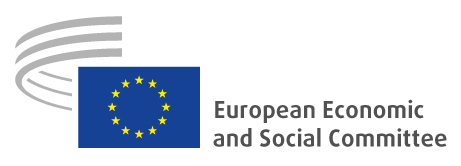Opinion
Can the EU overcome its enlargement impasse?
The ‘new enlargement methodology’ may help overcome the impasse triggered by the inability of the European Council to open accession negotiations with North Macedonia and Albania
On 5 February 2020, the European Commission published a communication on the EU accession process of Western Balkan countries[1], called as the ‘new enlargement methodology’[2]. This may be the good news as the step towards overcoming the impasse in the EU enlargement process triggered by the inability of the Council to open accession negotiations with North Macedonia and Albania in October 2019. Whether it will happen will depend on the position of France and other enlargement-skeptic countries (Denmark and the Netherlands opposed starting the talks with Albania).
Emmanuel Macron explained his desire to reform the European Union and the enlargement process before further accession negotiation are launched (Emmott et al, 2019). The communication can be seen as meeting the second French condition.
Even if the impasse is overcome in the next few weeks or months, the damage done so far will be difficult to repair. This relates, in particular, to North Macedonia, the country which has waited more than 14 years for accession negotiation to open. Such a long waiting period was caused mainly by Greece’s demand to change the country’s name from Macedonia. When this conflict was finally resolved in the Prespa Agreement of June 2018 and the politically painful ratification process of constitutional changes (caused by the change of name) was completed, North Macedonia expected to be rewarded with opening accession negotiation. Then came the French veto. The government of North Macedonia resigned and called a snap election, scheduled for 12 April, the results of which are difficult to predict. It may give a victory to nationalistic forces whose commitment to European integration and democratic values is weaker as compared to the outgoing coalition of social democrats and Albanian minority parties.
The consequences of not opening accession negotiations in October 2019 has been felt beyond North Macedonia and Albania. The credibility of the entire EU enlargement process in the region has been undermined. Consequently, it also put political stability of the Western Balkans under question as it hangs, to a large degree, on the prospects of EU membership offered by the EU Thessaloniki summit in June 2003. It also encouraged other powers, in particular, Russia and China to continue their meddling in the region’s problems (Tcherneva and Varma, 2019).
Furthermore, as the credibility and strength of the EU Common Foreign and Security Policy (and other external policies) is built on so-called soft power and the EU’s ability to deliver on the earlier promises plays a crucial role. Signs of isolationism and inward-oriented national policies aimed to mobilize the support of enlargement-sceptical constituencies damages the EU’s position as the global political player.
The new communication reminds us of the geopolitical importance of the Western Balkans for the EU and of the major commitments the EU has made to this region in the past. It says, among others, that ‘…firm, merit-based prospect of full EU membership for the Western Balkans is in the Union’s very own political, security and economic interest. In times of increasing global challenges and divisions, it remains more than ever a geostrategic investment in a stable, strong and united Europe.’ It also calls ‘all parties [to] abstain from misusing outstanding issues in the EU accession process’, a clear reference to incidences of using EU enlargement as a hostage of domestic political games in individual member states.
The communication suggests a new approach to accession negotiations, but whether it will be a new mechanism remains a big question. Besides, one may ask whether the procedures used so far should and can be changed. In this respect, the communication seems to respond to concerns of the French government and its earlier non-paper[3] published in November 2019 rather than to real difficulties experienced in accession negotiation.
One of the issues strongly emphasised by the Commission is the priority of fundamental political reforms such as the rule of law, functioning of democratic institutions, fighting corruption, etc. As the document stresses ‘…negotiations on the fundamentals will be opened first and closed last and progress on these will determine the overall pace of negotiations.’ This is the right approach, especially in the light of recent developments on this front in some member states, especially in Hungary and Poland. However, focus on the fundamentals in the EU accession negotiation is not totally new. It was articulated, among others, in the State of the Union Address 2017 of the then President of the European Commission Jean-Claude Juncker[4] and then repeated in a series of Commission and Council documents related to Western Balkan region in 2018.
Furthermore, even the strongest emphasis given to foundations of political and legal systems in accession negotiations will not provide a full protection against potential abuses of the rule of law and authoritarian drift in individual countries once they become EU members. It is worth remembering that Hungary and Poland enjoyed high scores in various international ratings of democratic institutions and the rule of law when they entered the EU in 2004. Besides, incidents of backsliding on fundamental values have happened not only in new member states.
As well as the greater emphasis on fundamental values in accession negotiation, the EU must also strengthen the mechanism of their enforcement with incumbent members. It may include, for example, a regular Commission’s assessment of member states’ records in the area of fundamental rights and the rule of law, more active use of infringement procedure in case of failure to implement EU law, strengthening competences of the Court of Justice of the EU, etc. (Dabrowski, 2017).
Another novelty heralded in the communication is grouping 35 negotiation chapters into six thematic clusters. The Commission believes that this ‘…will allow a stronger focus on core sectors in the political dialogue’ and will help identify the most important and urgent reforms per sector. Indeed, this may help and even speed up the negotiation process under the condition that some secondary issues in less important chapters will not hold the entire negotiation cluster. Another doubt relates to chapters grouping. One may ask, for example, whether ‘statistics’ and ‘financial control’ really belong to ‘fundamentals’ or whether putting together agriculture and regional policy in one cluster is a rational move. The practice will show how the new system works.
The communication proposes several organisational steps such as better alignment of the reformed negotiation process with the work of bilateral Stabilisation and Association Councils, Stabilisation and Association Committees and sub-committees, which monitor implementation of Stabilisation and Association Agreements (SAA). It also suggests better use of the annual assessment of candidate countries by the Commission, better communication to member states on the accession process and more transparency in negotiations.
Finally, the communication emphasises fair conditionality of accession negotiation and incentives for candidate countries. Among ‘carrots’ there are prospects of ‘…accelerated integration and “phasing-in” to individual EU policies, the EU market and EU programmes’ and increasing funding and investment ‘…through a performance-based and reform-oriented Instrument for Pre-accession support and closer cooperation with IFIs to leverage support’. The devil is in details: how ‘phasing in’ will operate in practice, that is, whether it will go beyond integration provisions of SAA, and whether the new Multiannual Financial Framework can allocate more funds for pre-accession aid.
The ‘sticks’ include putting on hold negotiations in certain areas, suspending the entire negotiation (as it happened de facto in case of Turkey), reopening the already closed chapters, reducing the EU funding (except for that to civil society), pausing or withdrawing benefits of closer integration.
In practice, however, the critical issue is finding the right balance between positive and negative incentives. Historically, this balance moved towards negative incentives, undercutting the hope of candidate countries that have a real chance of joining the EU in a foreseeable future. Such a hope is the strongest incentive to carry out the most difficult and painful reforms and all other ‘carrots’ make sense only as intermediate rewards to achieve this final goal. ‘Sticks’ which mean, in practice, temporary or permanent exclusion from the EU accession process (when things go wrong) are the real threat only if the very idea of EU enlargement remains alive and EU is ready to deliver on its historical promise given to Western Balkan countries almost two decades. Keeping the EU enlargement perspective affordable for candidates is of crucial importance for creating the right balance of incentives in accession negotiations.
References
Dabrowski, M. (2016) ‘The future of the European Union: Towards a functional federalism’. Acta Oeconomica, Vol. 66 (S1), pp. 21-48, DOI: 10.1556/032.2016.66.S1.2
Emmott, R., Guarascio, F., and Pennetier, M. (2019) ‘France under fire for ‘historic error’ of blocking Balkan EU hopefuls’. Reuters, 18 October, https://www.reuters.com/article/us-eu-summit-balkans/france-under-fire-for-historic-error-of-blocking-balkan-eu-hopefuls-idUSKBN1WX1CT
Tcherneva, V., and Varma, T. (2019) ‘After the French veto: The new scramble for the Western Balkans’. European Council on Foreign Relations. Commentary, 25 October, https://www.ecfr.eu/article/commentary_after_the_french_veto_the_new_scramble_for_the_western_balkans
[1] ‘Enhancing the accession process – A credible EU perspective for the Western Balkans’, Communication from The Commission to The European Parliament, The Council, The European Economic and Social Committee and The Committee of The Regions, Brussels, 5 February 2020, https://ec.europa.eu/neighbourhood-enlargement/sites/near/files/enlargement-methodology_en.pdf
[2] ‘Revised enlargement methodology: Questions and Answers’, European Commission, Brussels, 5 February 2020, https://ec.europa.eu/commission/presscorner/api/files/document/print/en/qanda_20_182/QANDA_20_182_EN.pdf
[3] ‘Reforming the European Union accession process’, Non-Paper, November 2019, https://g8fip1kplyr33r3krz5b97d1-wpengine.netdna-ssl.com/wp-content/uploads/2019/11/Enlargement-nonpaper.pdf
[4] ‘President Jean-Claude Juncker’s State of the Union Address 2017’, European Commission, 13 September 2017, https://ec.europa.eu/commission/presscorner/detail/en/SPEECH_17_3165
Republishing and referencing
Bruegel considers itself a public good and takes no institutional standpoint.
Due to copyright agreements we ask that you kindly email request to republish opinions that have appeared in print to [email protected].







